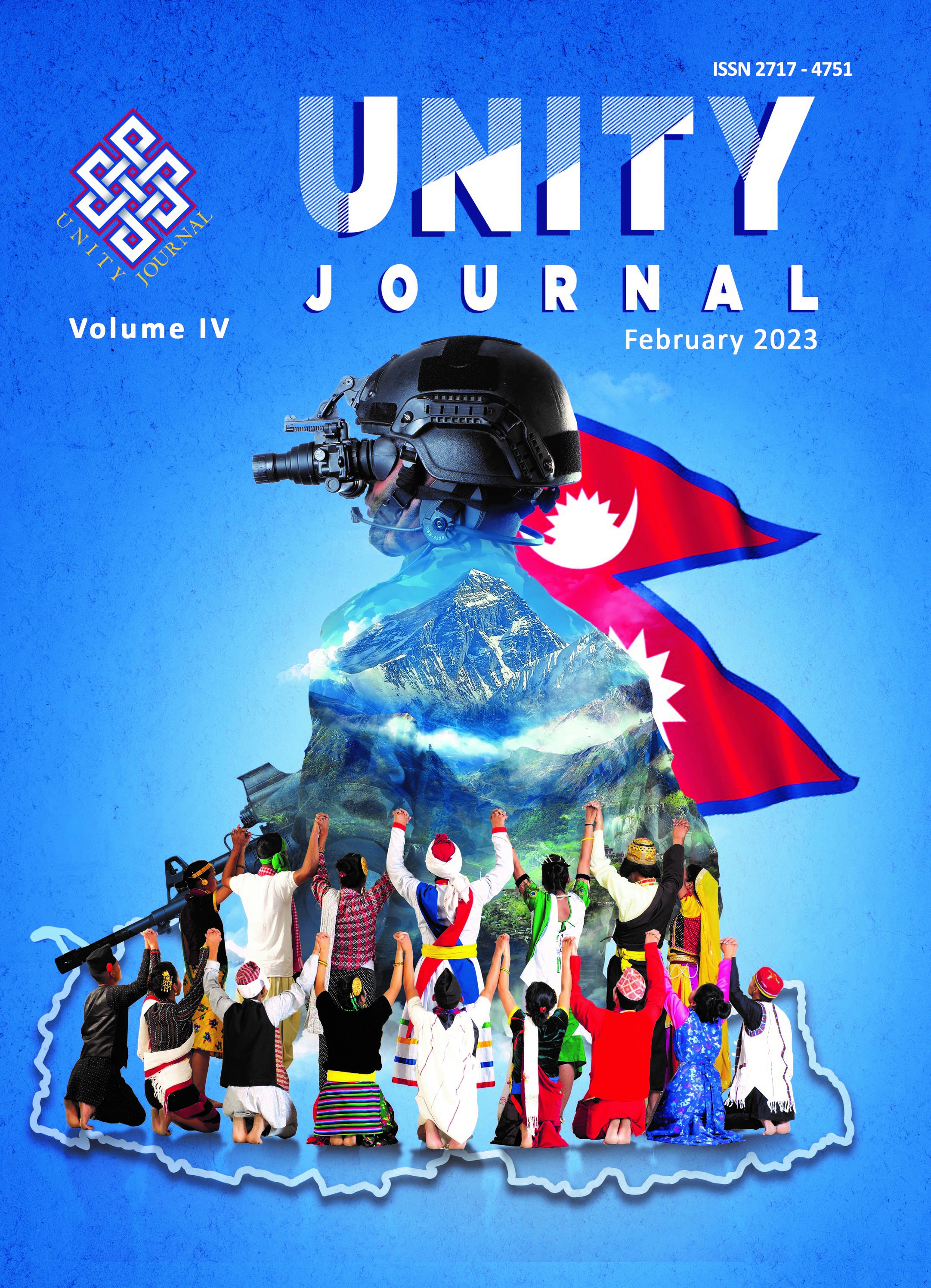Nepal’s Significance amidst the Tripartite Competition between China, India and the US
DOI:
https://doi.org/10.3126/unityj.v4i01.52241Keywords:
security, national interests, security dilemma, geostrategic rivalry, geopoliticalAbstract
Geopolitics is never static. After the Cold War, relations among the US, China and India have changed significantly. With the rise of India and China as new economic powers invites an increasing interest of the US. While each has competitive and rival ambitions, Nepal is still trying to get the benefit from the tripartite competition. The US fearing China’s rising power wants to increase its influence in Indo-Pacific region through ‘Indo-Pacific Strategy’. China, also wanting to be next power, wants to exert its influence in the region through ‘Belt and Road Initiative’. First, this paper examines an increasing interest of each of the state and their overlapping interests. In all this, Nepal is brewing in the hot pot of the tripartite competition. Nepal is in a delicate situation where there will be pressure to choose one side, without annoying another and thus testing Nepal to strike a balance. Secondly, the paper examines the weaknesses of Nepal’s foreign policy and the lessons to learn from it. In all this, Nepal should objectively study the major and rising power diplomacy, their implications and safeguard own national interests. This paper is developed by adopting qualitative method using descriptive and analytical approaches. Although Nepal’s role might seem minor at regional and global level, the country is significant to its neighbors and the US to strengthen their geo-political strategies.
Downloads
Downloads
Published
How to Cite
Issue
Section
License
The articles rest within the authority of the Nepali Army. Only with the Nepali Army's prior permission, can any article in whole or in part from this journal shall be reproduced in any form.

